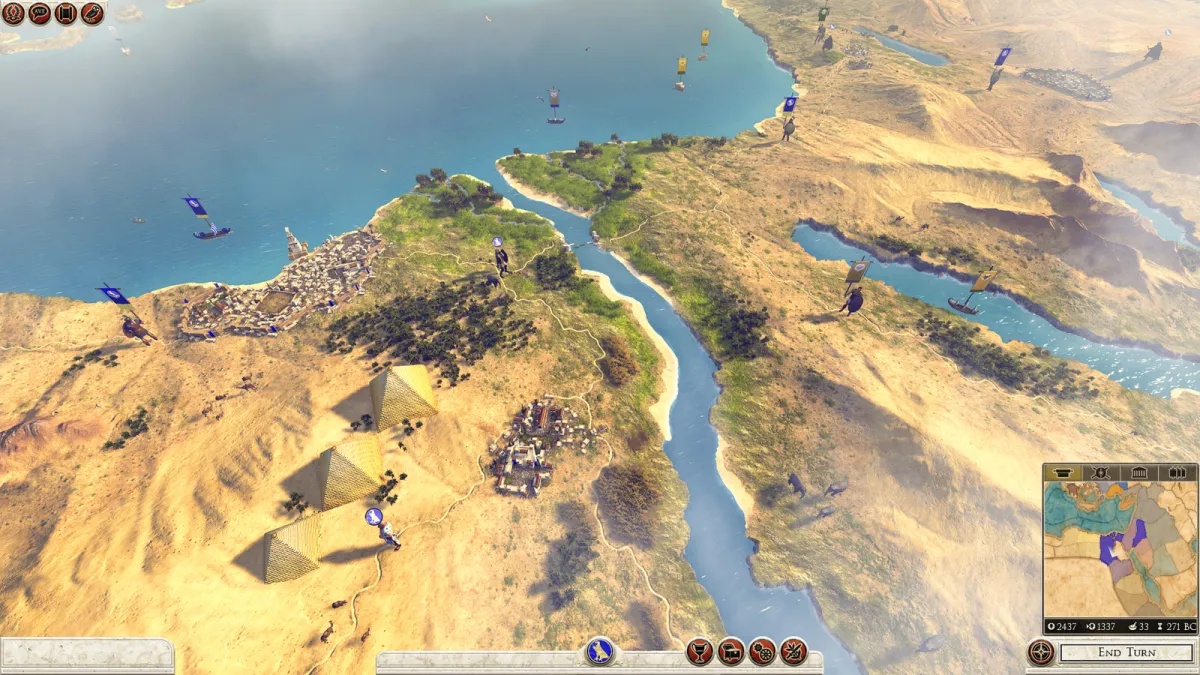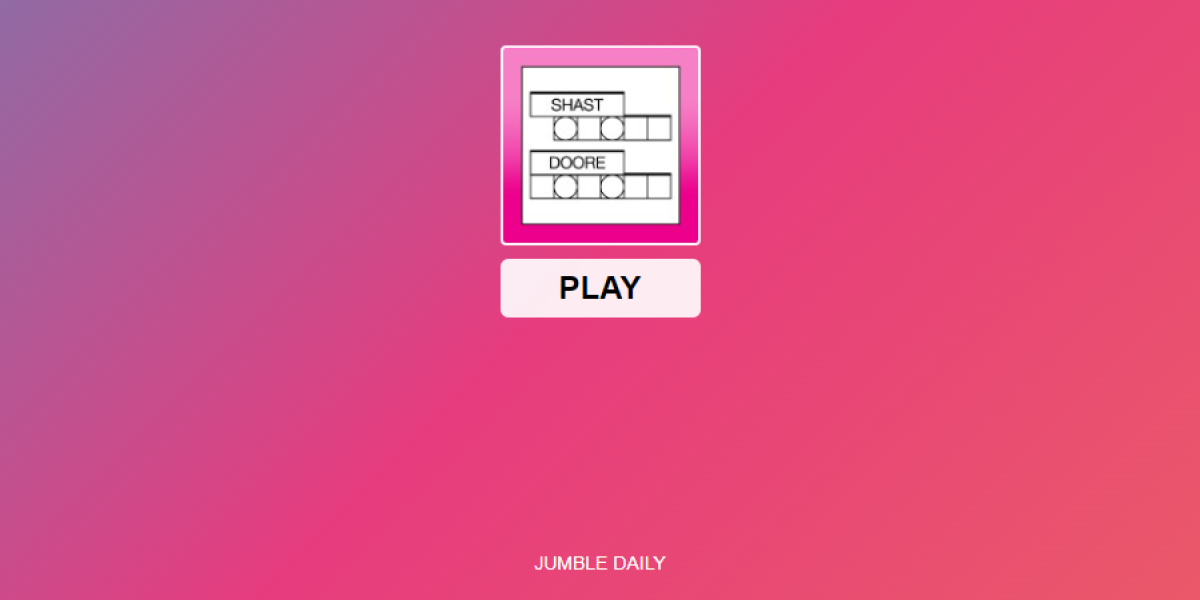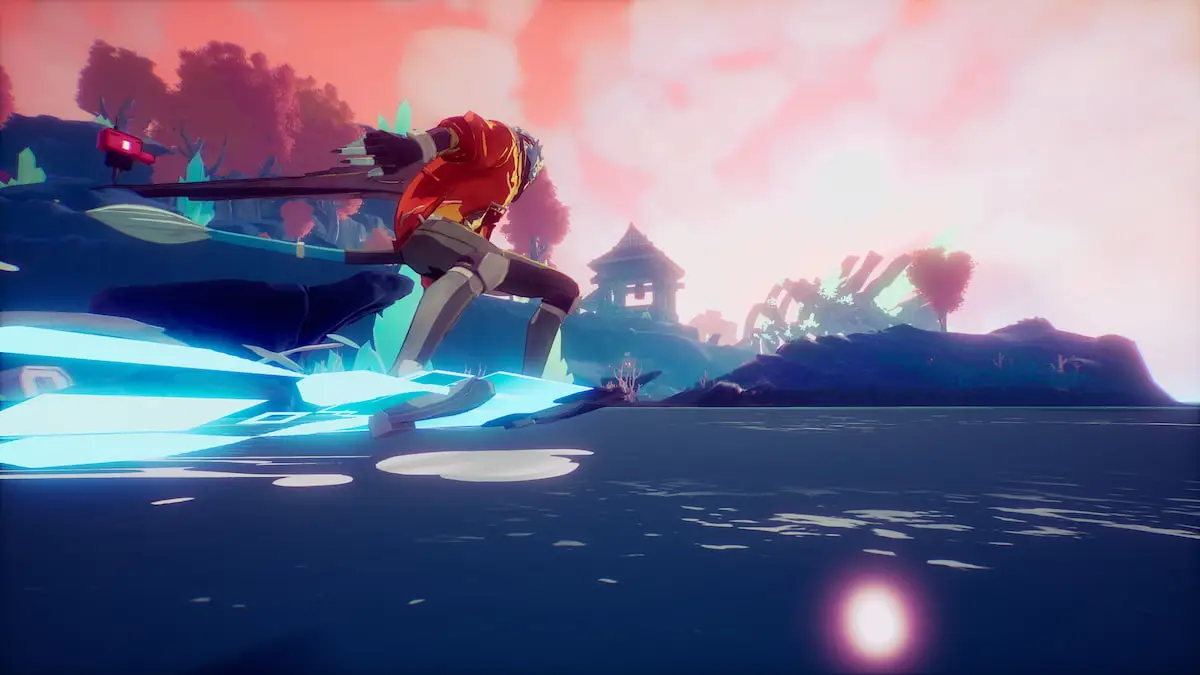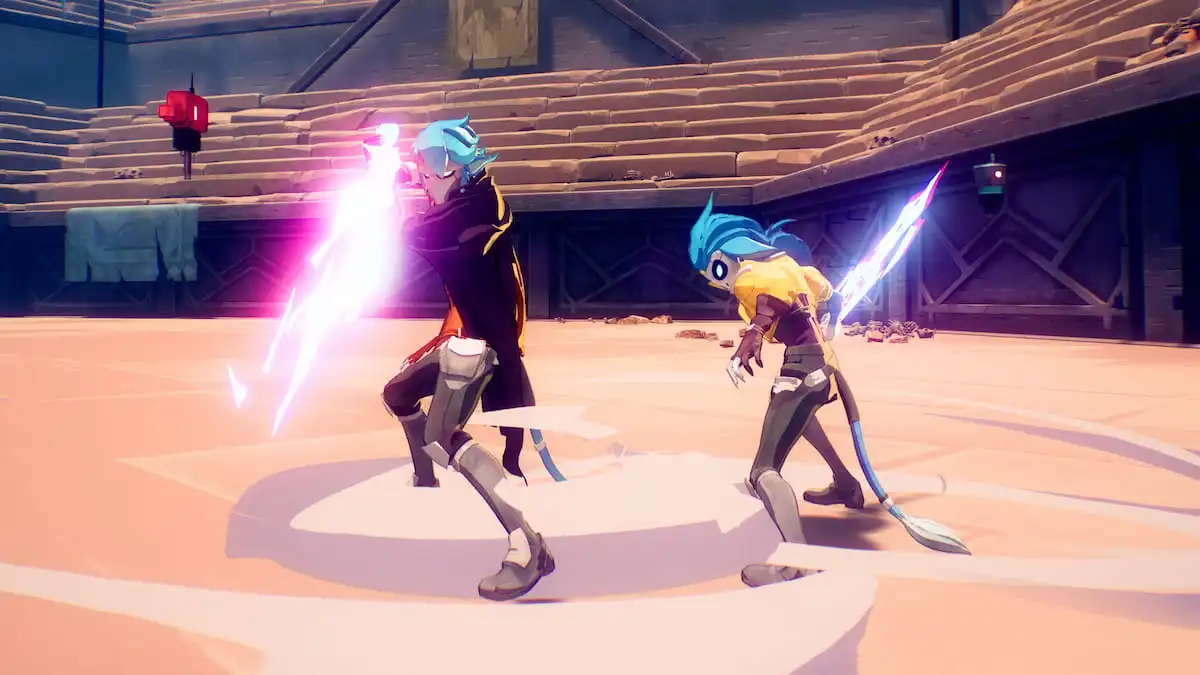The Total War series is considered by many to be the pinnacle of the strategy video game genre.
Creative Assembly has developed the series since it started in 2000. In its 22-year history, the devs have taken the players into different historical eras, from the Ancient stories of Greeks and Romans to the Napoleonic Wars, and even entered the fantasy world by making games in the Warhammer universe.
The Total War series features in-depth strategic decisions, from detailed battles in which players decide every move of their armies to economic, political, espionage, diplomatic, and religious ones. While the battles take center stage, features like winning the fondness of the Pope, managing the finances of your empire, making allies, and more are the most memorable All in all, it’s a franchise that values creativity and management in its players, which allowed it to cement itself as one of the best strategy series in video game history.
With 16 titles released throughout its history, some players, especially new players, might find it difficult to enter the series and find a game that will suit them the most. Our list of Total War games explains why certain games are better or worse than others. Keep in mind that every title in the Total War series has more pros than cons, and all of them are worth getting into.
Here are all of the games in the Total War series ranked from worst to best.
16) A Total War Saga: Troy
One of the newest releases in the saga, Troy, lands in last place in our ranking despite having some of the best attention to detail in Total War history. As the name suggests, this time players can delve into the historical era of the Trojan War in the Bronze Age, which happened around 1200 BC, according to historians. The game has all the best features like its predecessors, but on its own, it doesn’t bring anything new to the series, despite the detailed graphics mentioned. Although it uses many details from the Illiad and historical accounts, it still doesn’t appeal to those who loved Total War’s historical aspects. This game wasn’t meant to be a AAA title but a part of the A Total War Saga subseries, so fans shouldn’t expect much.
15) A Total War Saga: Thrones of Britannia
The second game from the subseries, Thrones of Britannia, comes next. This time, the devs took players into the rivalries between the Britannia factions like Mercia and Wessex in the ninth and tenth century AD. The players’ goal is to compete in a race for a new king of Britain after the mainlanders defeated the Vikings, though the latter is also an available faction. Once again, this game contains Total War’s best features, though they are limited, and the title brings almost no new aspects to the series.
14) Total War: Attila
Total War: Attila follows the age of Classical Rome, as it begins in 395 AD, when the Roman Empire was split into the Western and Eastern ones, with the latter becoming the Byzantine Empire. The titular Attila is available to play as the leader of the Huns in the mid-game, but you can’t pick him at the start. In this one, players can choose one of the Barbaric tribes and conquer the split Western Roman Empire, or choose the latter and try to defend against the attacking barbarians. Total War: Attila brought a few new features, like religious conversion or Scorched Earth policy, which were acclaimed by the players, who wanted some new elements in the series.
13) Total War: Three Kingdoms
Set in China during the rule of the Han dynasty, in Total War: Three Kingdoms, players try to take control over the country during a civil war. You take over one of the 12 factions who want to govern Ancient China. The game is the second-latest main entry in the franchise and has brought in many new parts to the gameplay, like a new battle system and improved graphics. Those elements were highly advertised by the creators, making Three Kingdoms the most pre-ordered part of the series until its release, according to Creative Assembly. Still, in the eyes of many, it’s a game that could have been more polished originally, but the DLCs help to round it up and make it a solid strategy game.
12) Total War: Rome II
The first part of the Total War series inspired by Ancient Rome, Rome: Total War, was released in 2004 and was one of the most successful games in the franchise’s history, bringing it much fame and players. Therefore, when Creative Assembly made a sequel, expectations were high, and the creators didn’t exactly live up to them. The title hit record pre-order sales for the developers, though. Still, Total War: Rome II is a firm entry, with nice graphics and slightly upgraded gameplay systems.
11) Napoleon: Total War
While this game follows the fascinating story of France’s great leader, Napoleon Bonaparte, it’s said to be too much of a copy of Empire: Total War released a year prior. In Napoleon: Total War, players can enter naval battles and have a few different campaigns that follow Napoleon’s historical wars in Egypt, for example. Still, it didn’t bring anything fresh, which was the main argument in players’ criticism of the production.
10) Total War: Shogun 2 – Fall of the Samurai
While Total War: Shogun 2 takes place during the Sengoku Jidai period, its mammoth, standalone expansion called Fall of the Samurai takes players 300 years into the future, towards the end of the Tokugawa Shogunate.
The expansion improves a lot of elements of the original game while also adding a bunch of new features as well. In Shogun 2, players are briefly introduced to modern-age weapons, units, buildings, and so on. Fall of the Samurai takes those aspects to a whole new level, introducing new, more advanced types of infantry, Gatling guns, railways, and so on. Overall, players were really fond of this expansion, who enhanced their already much-loved Shogun 2 experience.
9) Total War: Warhammer
For the first time in Total War’s history, the franchise took a turn and entered the world of high fantasy, Warhammer. And despite many fears of it turning out to be a terrible idea or of the devs not knowing how to execute the unknown fantasy world, it was right on the money. While it still had flaws, fans of the fantasy series and the game franchise loved it, and it quickly was announced to be the first part in a trilogy, which would only get better. Another new thing the developers did, at fans’ behest, had a faction as free DLC for anyone who bought or pre-ordered the game before the first week of release was over.
8) Shogun: Total War
The first entry in the series is probably one of the most nostalgic games for fans. As in its sequel, players choose one of the Japanese clans during the Sengoku Jidai period (also known as the warring states period of Japan), which lasted from the mid-15th to the beginning of the 17th century, and try to take control over the broken country. And while it has irreplaceable gameplay, from today’s standpoint, Shogun: Total War is simply outdated. It’s still incredibly fun to return to it, but after many new releases in the series and upgrades in many aspects, this one quickly gets boring. Nevertheless, once it was released, Shogun: Total War was an undisputable hit, which gained the first die-hard followers to the series.
7) Medieval Total War
A sequel to Shogun: Total War, Medieval Total War greatly expanded on the bedrock laid by its predecessor. It was mainly praised for bringing true strategic in-depth choices that the series was using for years in the future and was praised for. It mainly focuses on warfare, religion, and politics, the three foundations of the Total War games to come. It also introduced siege battles, which became a series staple and were perfected over the next few games.
6) Total War: Warhammer 2
A sequel to 2016’s Warhammer followed the story laid on in the previous title. Despite not bringing many new aspects to the table gameplay-wise, players and critics praised its single-player campaign, Eye of the Vortex, during which each playable race has its own story cutscenes. It also allowed players to use the factions from the previous game, Total War: Warhammer, in Total War: Warhammer 2. The factions brought from the original had updated graphics and a brand new campaign, Mortal Empires, which had every faction fight on a huge map.
5) Total War: Warhammer 3
The grand finale of the Warhammer saga. This time, the devs took their time impressively finishing the story since it took them five years to close it after the release of Warhammer 2. They did a fantastic job deepening the depth of the game, improving the quality of many gameplay aspects, and most importantly, making it really thrilling and easy to enjoy for both newcomers and veterans of the franchise.
Like Total War: Warhammer 2, Total War: Warhammer 3 allowed players to use factions from previous games on an even larger map. When you have all the factions from every game, this arguably feels like playing tabletop Warhammer. It’s the end of the Warhammer trilogy, but this won’t be the last time Creative Assembly dives into fantasy.
4) Empire: Total War
The fourth spot on our list is taken by Empire: Total War. It was secretly in development for four years, and it was visible from the first sight by the number of new features it brought.
Empire introduced elements of strategic prowess, like naval battles, which were pivotal in the 18th-century world when colonization was crucial for getting strategic resources and being dominant globally. Moreover, Empire took the major elements from previous games, like economics, and simplified its use while also keeping it fun and pivotal in your gameplay. For example, the game introduced a new economic development for players’ regions, shifting from managing only cities to regional heatmaps, which allowed for more complex strategic decisions. It also, naturally, was the first one in the series to feature such a huge map, which ranged from Eastern North America through Europe all the way to India.
It was widely praised for its innovative gameplay when compared to the previous installments, but also had a massive number of critics in the first months after release due to numerous bugs. Nearly all of them were resolved in time, though, and the devs learned from their mistakes and didn’t make the same ones when creating the next entry, Napoleon: Total War.
3) Total War: Shogun 2
After making a couple of games mostly based in Europe, at the beginning of the second decade of the XXI century, the devs returned to Japan and to the much-beloved Sengoku Jidai period, which was featured in the first Shogun: Total War. Its sequel once again follows the story of 16th-century Medieval Japan during a period of conflict and isolation. The plot is exciting and easy to delve into for those unfamiliar with the history, and the players can choose from much stronger factions, who are dominating in certain regions at the start of the campaign, or can pick tiny ones, that make expanding onto the rest of Japan incredibly hard, but not impossible.
Furthermore, it introduced a new battle engine, which allowed players to have up to 56,000 soldiers in battles. Moreover, it took the players back to the Japanese military, which was well-known and liked by them because of Shogun: Total War. All in all, It was a new, captivating and rewarding experience despite returning to the series’ roots.
2) Medieval II: Total War
One of the most iconic strategic titles in video game history, Medieval II: Total War, takes second place in our ranking. With its expanded characters, battle systems, town management, military forces, and diplomatic and religious schemes, it gained the love of many players. Set in medieval Europe, players were allowed to take over a bunch of historic countries, whose number was increased through time with the DLCs. Medieval II: Total War was polished in and out, creating a unique tone, which wasn’t repeated by any of the following titles. Even now, it is one of the most stellar Total War entries in history, with easy-to-learn but hard-to-master mechanics.
1) Rome: Total War
Critics and players may forever dispute the ranking of certain games, but in many game franchises, there is always a title that will stand out as No. 1. In terms of Creative Assembly’s best-known series, we say it’s Rome: Total War.
While Shogun: Total War laid out the foundations, Medieval: Total War expanded on them, and Rome: Total War was the following title, which was almost perfect. Playing as one of three Roman families, the goal was to control the Apennine peninsula and the surrounding regions to recreate Classical Rome with its thrilling campaign and amazing battle system.
Each Total War game has two main features: the turn-based strategic campaign where a player establishes their faction as the strongest in the game, and the real-time battle one, where you use tactics to outmaneuver your enemy. While the two first entries in the series polished the former one, Rome: Total War took real-time warfare to a new level, introducing new possibilities and elevating the AI, who became a formidable enemy in most difficulty levels.
The devs remastered the game in 2021, giving it mostly visual updates. It was a mighty effort, which definitely took players on a nostalgia trip since the gameplay is basically a one-to-one copy of the original one. Yet, the update wasn’t significant enough, and Total War Rome: Remastered just looked like a game with scrappy mechanics, too old for the current days.
Nevertheless, the reviews of the original game rarely went below nine on a scale of 10, with Eurogamer, GameSpot, and IGN giving it nine or higher. For many critics, it was one of the best games of the first decade of the 21st century, and to this day reigns as one of the greatest strategy productions.







Published: Sep 20, 2022 06:34 am